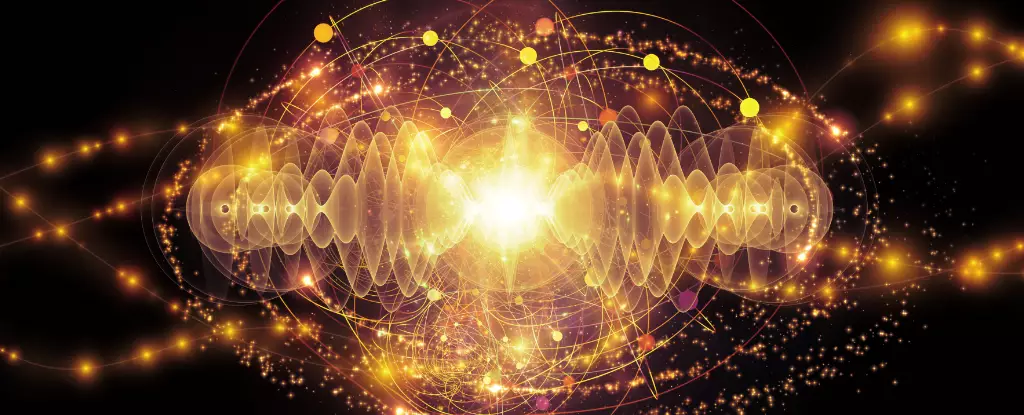While traditional embezzlement drives the stakes of legal consequences in the corporate world, a groundbreaking concept emerging from quantum mechanics introduces a different kind of intrigue. In recent years, researchers have delved into the possibility of “embezzling entanglement,” drawing parallels between the mathematical manipulation of quantum states and the dark arts of financial deceit. This fascinating convergence of quantum theory with the notion of theft expands beyond mere theoretical musings—it’s laying the groundwork for future exploration of entanglement’s potential uses and implications in quantum systems.
The term “embezzling entanglement” was first coined by quantum researchers Wim van Dam and Patrick Hayden, who revealed a process that allows quantum systems to merge their entangled states stealthily, without leaving detectable alterations. This idea conjures imagery of an elusive heist, where particles entwine their identities in sophisticated, untraceable ways. Recently, theoretical physicists from Leibniz University Hannover have furthered this dialogue by mapping out specific fields that could facilitate such quantum interactions. Their work carries weighty implications for our interpretation of quantum mechanics and its observable effects on our realities.
At the heart of this dialogue lies a profound philosophical question: What is real? Our conventional understanding of reality—anchored by definitive properties such as location and momentum—shadows a more perplexing layer of existence, one woven from uncertainties and probabilities. Prior to measurement, particles exist in a haze of possibilities that hint at complex truths shaping their interactions. The relationship between this realm of uncertainty and the concrete laws governing physical behaviors parallels the intricate dynamics of a well-shuffled deck of cards: the game might change drastically with any minor shift.
Entanglement is a multifaceted phenomenon that can both empower quantum computation and disrupt it entirely. In navigating the complexities of quantum mechanics, entangled states can be manipulated to conduct advanced algorithms that utilize the probabilistic nature of quantum particles. Yet, similar to how a surprise change in rules can transform a poker game, unexpected disturbances can unravel entangled states, leading to unpredictable outcomes. The researchers argue that not all manipulations are created equal; some transformations can restore prior setups without detectable traces—often described as catalytic processes.
The recent study asserts that a combination of established theories—general relativity and quantum field theory—could yield an infinite source for embezzling entanglement. This groundbreaking revelation opens up a thrilling realm of potential applications, raising questions about the very fabric of reality and our capacity to manipulate it. Imagine a future where understanding these entangled manipulations can serve as the basis for novel computational strategies or even revolutionary technologies.
Currently, the tangible reality of utilizing this proposed embezzlement remains elusive. While theoretical frameworks outline the mechanics, practical implementations have yet to materialize. Researchers are tasked with identifying physical systems that align with these mathematical constructs and can serve as practical vessels for exploring the embezzling entanglement concept. What might appear as mere abstraction now could soon transform into a tool for unlocking astonishing possibilities in quantum sorcery.
As science continues to decipher the enigma of quantum mechanics, notions like embezzling entanglement serve as a reminder of the astonishing potential lurking in the fabric of the cosmos. Far from criminal intent, this notion sheds light on the intricate relationships governing quantum systems, showcasing the transformative power of entanglement. As we advance into this newly conceptualized realm, the appropriateness of our metaphoric quest for “theft” is less about moral implications and more about a fueled curiosity—inviting us to ponder how extensively our existence may intertwine with the unseen mysteries of the universe. Ultimately, embracing both the complexities and the potentials of quantum physics might lead to breakthroughs that redefine our understanding of reality itself.



Leave a Reply